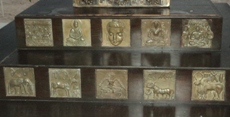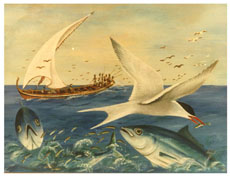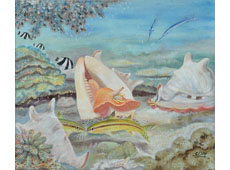Like all Maldivians, I have always known that former president Maumoon Abdul Gayoom articulated an Islam that he calls a ‘meduminuge’ (moderate) religion, or in Quranic terminology a religion of wasatiyyah. But until recently, when I immersed myself in Gayoom’s speeches and books for my Master’s thesis, I could not have fully articulated this Islam. I have only space to use material from three important speeches. (All quotes of Gayoom are from their original English versions.)
Progressive face or phase
The best place to start is Gayoom’s paper in 1985 on the ‘Flexibility of Islamic Shari’ah’ presented at a seminar in Kuala Lumpur. In this paper, Gayoom laid out his broad outlook on Islam:
Gayoom’s understanding of Islam is fundamentally ‘progressive’. He argued, ‘the message of Islam was never meant to be limited to the confines of a backward nomadic community of fourteen centuries ago’.
For him, the use of ijtihad (independent reasoning) should be wide-ranging: ‘there might be many problems, albeit already covered in traditional works on Islamic law, which need reconsideration in light of the changing circumstances’. This means, according to Gayoom, ijma (juristic consensus) can be overturned.
Gayoom maintained that ‘[t]he so-called closing of the door of ijtihād [is] quite alien to [Islam’s] encouragement of scientific and intellectual research and the attaining of knowledge in all fields’.
Thus, he concludes reflecting on the importance of ‘reason’ to Islam by saying: ‘Islam does not exclude a reasoned and diligent attitude to change; it does not instruct us to impede the flowing stream that is essential to human nature and its development.’
If this is Gayoom’s jurisprudential outlook, his substantive views are equally ‘progressive’ or even more radical than many of us might have thought.
Universal message of equality, love and tolerance
Thus, in an address in 1983 at Aligarh University of India, Gayoom laid out a radical message of tolerance, mutual love, and equality among people of all faiths.
On tolerance and love, he says:
The tolerance and magnanimity shown by the great Prophet of Islam, Muhammad (Peace Be Upon Him), the Second Guided Khalīfā, Umar ibn al-Khattāb, Salahuddin al-Ayyūbī and other renowned Muslim rulers of all times towards not only non-Muslims but also towards those who had waged war against the Muslim state will bear witness to the spirit of love and human brotherhood inherent in the teachings of Islam.
On equality, Gayoom argues there is no distinction whatsoever to be made with regard to the equality of rights between Muslims and non-Muslims:
The Holy Quran clearly establishes the right of every individual to follow whatever religion or creed of his choice when it says: ‘There is no compulsion in religion; surely right has become distinct from wrong.’ Islam safeguards the rights of non-Muslims…to no less a degree than it safeguards the right of its own followers.
For Gayoom, the tolerance and equality of all people is premised on the equal normative status of all religions:
No religion preaches hatred, jealousy or animosity. Religious intolerance, which inevitably leads to friction and conflict, and more often than not to bloodshed, is therefore an unforgivable departure from the path of God.
The path of God, according to Gayoom, is not a unique possession of one religion. Therefore, even more radically Gayoom points out that:
All religions guide to the path of God – the path of love, understanding and peace.
Subjecting the message to politics
Now, of course, this deeply anti-authoritarian, even radical, ideology contradicts the authoritarian political policies of president Gayoom. I am here referring to his discourse of nationhood. His nationhood discourse, which is now our taken for granted background national self-understanding, is based on the mythical and authoritarian motif of ‘100% Muslim nation’.
In another speech in 1983 at the ‘Seminar on the Call for Islam in South and South East Asia’, held in Male, president Gayoom again acknowledged that Islam provided for complete equality of rights for all humans. Nonetheless, he implied that the ‘unique’ national self-understanding overrides even the commandments of Qur’an:
The real essence of Islam, as you know, is that it is non-discriminatory. Its tolerance of other beliefs and religions is clearly established in the Holy Quran, the Sunnah of the Prophet (Peace be upon him!)…We Maldivians, as true believers of Islam, hold freedom of belief as sacred and we abhor discrimination between man and man on any grounds whether of creed, colour or race.
In spite of this, he continues, because:
[w]e are such a homogenous and closely-knit society based on one national identity, one language, and one faith…we are convinced that the preservation of this oneness in faith and culture is essential for the unity, harmony, and progress of the country.
It is this homogenising political discourse that underpins the dominant national self-understanding. But this discourse is not an Islamic discourse. In fact, as we saw above, it is at odds with Islam’s universal messages outlined by Gayoom.
A degree of godliness
Whether or not we will seriously uphold Islam’s anti-authoritarian universal messages as Gayoom so clearly laid out and whether or not we will rethink the authoritarian national self-understanding, are some of the most crucial questions we must address individually and as a society.
This task of serious self-reflection has become even more urgent under an increasingly interdependent and pluralistic world. This task has become socially necessary with the pluralisation and fragmentation of religious discourses, and with the increasing diversity in the society, not least because of migrant people of different faiths.
The task at hand is a transformation of ourselves as subjects and citizens: this task ultimately is one of inculcating a degree of godliness – mercy, compassion and love – in all of us.
This is indeed a more transcendent endeavour than the selfish, materialist politics that has always spread fear about a non-existent Other conspiring to destroy Islam. We all really deserve a better politics.
All comment pieces are the sole view of the author and do not reflect the editorial policy of Minivan News. If you would like to write an opinion piece, please send proposals to [email protected]
Likes (1)Dislikes
(1)Dislikes (0)
(0) 




